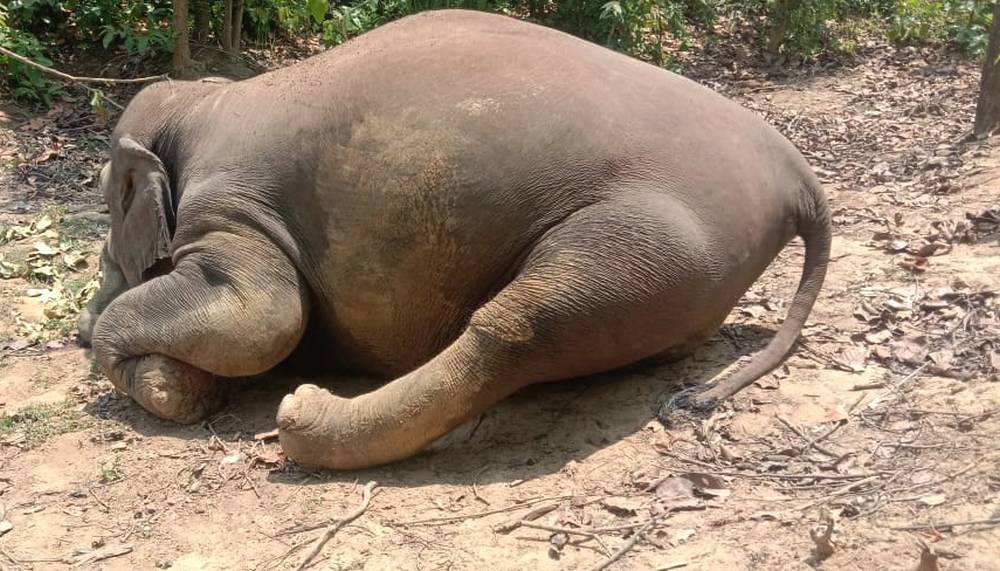Electrocution of Elephants in Sri Lanka Highlights Grave Threat to Animals
Revatha, an iconic Sri Lankan elephant died in North Central province in Sri Lanka in early March after being electrocuted by an electric fence. Four other elephants met a similar fate in the same region, reflecting the danger from illegal electrified fences in the country. The record-breaking cases of electrocution of elephants in Sri Lanka reflect the danger from illegal electrified fences in the country.
In 2019, approximately 7,500 elephants died in Sri Lanka, breaking all the records. Sri Lanka also records animal-human conflict. Elephants are revered in Sri Lanka but some farmers view them as pests. 85% of the deaths are caused by human activity.

The record-breaking cases of electrocution of elephants in Sri Lanka reflect the danger from illegal electrified fences in the country | Image: Avijan Saha
In the first three months of 2021, 100 elephants have died across Sri Lanka, out of which 21 were electrocuted, 18 died from eating explosive baits, and 12 were shot. Farmers in rural areas often put fences directly with powerlines, which is illegal and also leads to the death of innocent elephants and humans.
Electric fences are commonly deployed in Sri Lanka – a country with a dense elephant population and a high rate of human-elephant conflict. The wildlife deterring electric fences are meant to stun animals and not kill them. But the one used in Sri Lanka is directly connected to the overhead power line, which is illegal and lethal to the animals.

In 2019, approximately 7,500 elephants died in Sri Lanka, breaking all the records | Image: Gauri Maulekhi/Twitter
Every year, nearly 400 elephants and 50 people are killed in HEC incidents in Sri Lanka. The surge in electrocutions has led to calls for regulated electric fences.
Also Read: Asian Elephant Populations decline in India Despite Conservation Efforts
A solution to this problem can be community-based seasonal electric fencing. This can be managed by the community rather than individual farmers. A new national action plan has been proposed to mitigate human-elephant conflict in December 2020. It recommends community-based fencing to protect villages and animals.
At a time when wildlife conservation has become imperative, such incidents uphold the mirror of truth, the truth of how little is being done. More strict and earnest efforts are required to save animals from harm, for the survival of life on the earth depends on their survival.
Via: Mongabay


